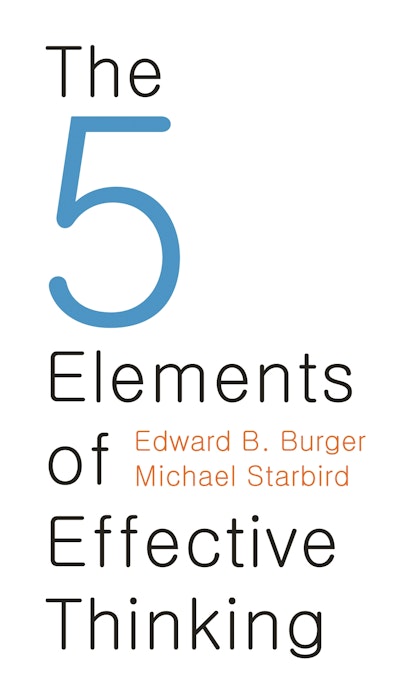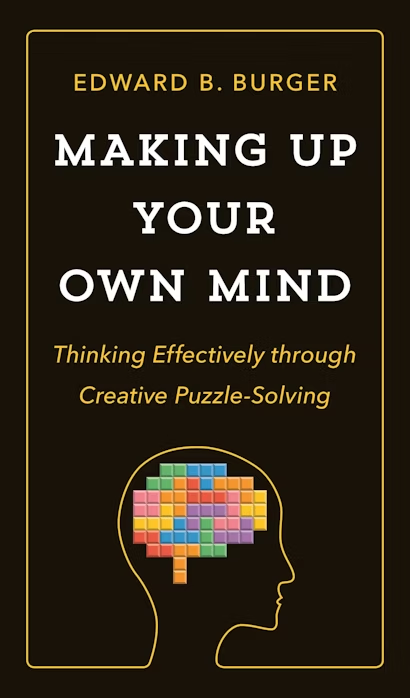While completing this piece, the world came together in shared sadness, pain, and grief. This time has been an awakening for some and a reminder for others of the injustice all around us and its long and ugly legacy. Always being one to allow for space to think and process, I have found that this time calls for a deeper level of reflection as we consider how to look to the future with a sense of purpose, hope, and change. For me, this type of deep reflection grew out of mathematics, but, far beyond that abstract world, we are all attempting to solve the puzzles of life (the problematic and disturbing ones as well as the enriching and uplifting ones).
A solution-focused mindset requires effective thinking and leadership that is open to innovation, creativity, evolution, and, without distraction, focuses on the short-term implications and long-term consequences of potential solutions. This type of thinking challenges us to balance facts, needs, constraints, emotions, and opportunities to make the best decisions possible given imperfect and incomplete information about an unknowable future. The more we address historical injustices and systemic inequity—amidst the evolving backdrop of the Covid-19 pandemic—the more we require a solution not only to the puzzle of how we return to good health as a global community, but also a solution to the puzzle of how the future of humanity will eventually unfold.
Beyond the many unknowns, one certainty remains: that we, as a people, will not return to a previous normal. This fact might be disconcerting to some and yet for many, ‘normal’ reflects inadequate and inequitable access to basic human resources. But the knowledge that humanity will change also offers tremendous opportunity, if we open our hearts and minds to that reality. We can, with intentionality, use this time to listen, learn, and innovate as we work to embed equity and justice into the core of how we set about crafting the next new norm.
To address these profound and paramount issues artfully and wisely, we can apply The 5 Elements of Effective Thinking by striving for ever-deeper understanding, mindfully learning the essential lessons from our missteps, creating questions to move us forward, and seeing the consequences of the flow of ideas. Through practical and actionable steps, we come upon the quintessential element of effective thinking and of life itself: Through effective thinking, we change—we grow, we evolve.
As you discover new insights, you are no longer the previous version of yourself—you become a new and improved version of you. And that axiom is the point. This time of social distancing and self-quarantining offer us the unusual (and at times uncomfortable) opportunity to sharpen our own abilities to be better puzzle-solvers, better thinkers, thus become better versions of ourselves, which in turn provides an opportunity for a better world. Thus, now is the time for us to begin to create the future of humanity.
For example, what is the future of formal education? We can dream anew about its potential for lifting up minds to transform the future lives of students—giving us a window to look beyond age, socioeconomic status, ethnic or racial background, street address, and other irrelevant labels—so that everyone has the opportunity to realize their ultimate potential and capacity. We can work to change our educational goals from rote learning and memorization to developing ways of thinking, creating, and connecting to not just think about subjects, but also to think through subjects—intentionally developing practices of the mind that allow students to make meaning of the subject while also making greater meaning of the world around them today and tomorrow.
This pandemic also invites us to consider how we instill those mindsets and practices of personal and intellectual growth. As an educational public service, during the pandemic, I launched the St. David’s Foundation Virtual Math Academy. During a five-week period, I created learning and growth environments for K–12 grade-level students as well as special math events for all ages (for the entire family). While my on-line presence over the past twenty years consists of thousands of videotaped math lessons, I wanted this virtual experience to be spontaneous with live interactions among all participants. This approach required a new and different mindset of teaching and learning.
It was a wonderful experiment showing that there are ways to create an engaging virtual community, generate curiosity, and foster intellectual growth at all grades. Even more exciting was discovering how quickly these young minds change their way of thinking and embrace new practices not only for how they understand mathematics, but how they think through everything. In just five weeks, I observed students (and several adults) applying the practical modes of thought they were offered to transport themselves to someplace new.
Beyond making virtual learning more compelling and effective, this moment is also an opportune time to revisit how we offer life-changing growth opportunities through formal education. The focus of students in the first five minutes of an hour-long class is not the same as in the last five minutes. So how can we become more effective? Perhaps offering twenty-minute blocks of community learning (classes) and then opportunities for students to freely process, think, explore, generate curiosity, and intellectually play, before reconvening to exchange ideas and discoveries, engage again in guided instruction, before adjourning for active learning (and repeating).
The future will follow from how we promote practices of living, thinking, and feeling into the youngest members of our society, how we inspire them to be open-minded and emotionally balanced, how we foster opportunity, and how we provide them with safe and healthy environments in which to flourish. This moment in time opens up the possibility of intentional and meaningful change. Let us thoughtfully seize that moment to create new, uplifting norms that will allow the humanity of tomorrow to truly thrive.
Edward Burger is President & CEO, St. David’s Foundation, and President Emeritus & Professor Emeritus of Mathematics, Southwestern University. He is the coauthor of The 5 Elements of Effective Thinking and author of Making Up Your Mind: Thinking Effectively Through Creative Puzzle-Solving.


